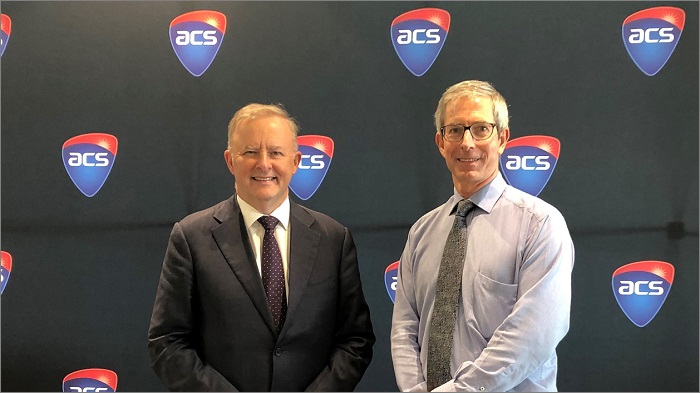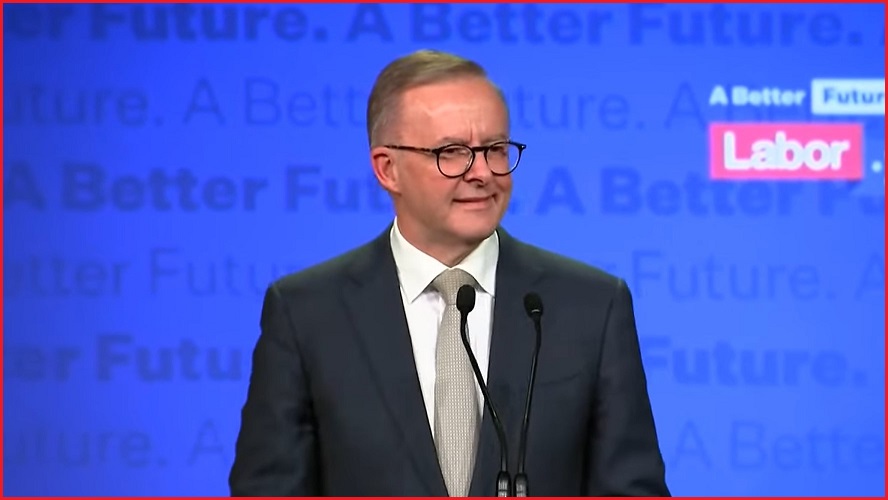The Australian technology sector has welcomed the new government following Labor’s historic election victory on Saturday night as it promised training and funding for advanced technologies.
In his victory speech, Labor leader Anthony Albanese, who was sworn in as Prime Minister on Monday morning, said he wanted to “bring Australians together”.
“I want to seek our common purpose and promote unity and not fear,” he said.
“I want to find that common ground where together we can plant our dreams. To unite around our shared love of this country, our shared faith in Australia’s future, our shared values of fairness and opportunity, and hard work and kindness to those in need.”
Albanese further committed his government to the Uluru Statement from the Heart during his speech, along with the creation of a national anti-corruption commission – a promise the previous government failed to deliver – and plans to expand the nation’s renewable energy sector.
During the election campaign Abanese vowed to achieve 1.2 million technology workers in Australia by 2030, a target that would be reached in part by 450,000 fee-free TAFE places and the creation of an extra 20,000 university placements.
At the time, the Australian Computer Society (ACS) was critical of that policy not being ambitious enough – ACS forecasts the country is already on target to hit the 1.2 million tech worker mark by 2027 regardless – but has welcomed the new government’s focus on creating an advanced economy, especially through its $15 billion National Reconstruction Fund.
“ACS looks forward to working with Mr Albanese’s team to develop programs that encourage young Australians to study IT-related fields, workers to retrain in digital skills, and businesses to invest in emerging technologies,” ACS President Dr Nick Tate said.
“Labor’s plans to build Australia’s advanced manufacturing sector will require a strong national investment in digital skills as well as incentives for business to invest in emerging technologies, and we look forward to working with the government in achieving this.”
Plans for the National Reconstruction Fund involve specific spends on medical manufacturing, renewable energy, and a $1 billion Critical Technologies Fund aimed to help fund emerging technology projects in areas like AI, quantum computing, and robotics.

Prime Minister-elect Anthony Albanese with ACS Chief Executive Rupert Grasyton at the Sydney innovation Hub in 2021
Kate Pounder, CEO of the Tech Council of Australia, said the funding will help Australia become “a global tech powerhouse”.
“This fund will enable the tech sector to capitalise on this once-in-a-generation opportunity to make Australia a global tech powerhouse – to deliver billions in economic activity; provide secure, flexible, well-paid jobs for Australians; and make Australia the best place to start and grow a business,” she said.
“Over the last decade, Australia has shown it can create globally successful tech companies from locations ranging from Sydney to the Sunshine Coast.”
Other pre-election promises included giving 90 per cent of fixed-line premises the option of hooking up to a gigabit NBN by 2025, ending a widespread reliance on consultants and contractors in the public service, and changes to the Fair Work Commission that would build in national protections for gig economy workers.
Albanese oversaw the swearing in of his first cabinet ministers on Monday morning promoting senior Labor party members to prominent positions.
Richard Marles is now Deputy Prime Minister and Employment Minister; Penny Wong is Foreign Affairs Minister; Jim Chalmers is Treasurer; and Katy Gallagher takes the roles of Finance Minister, Minister for Women, and Attorney-General.
The rest of Albanese’s cabinet will be announced next week.
CEO of the Australian Information Industry Association, Ron Gauci, wants to see the new government create a Government Services and Digital Economy Minister as part of its first cabinet in order to “deliver on the digital opportunities available to Australia”.
“The growth of Australia’s digital and innovation economy demands a dedicated minister, as it is now Australia’s third largest economic sector,” he said.
“Our sector could easily employ 1.5 million Australians in the next few years if the government addresses our skills shortage and supports the sector.”










